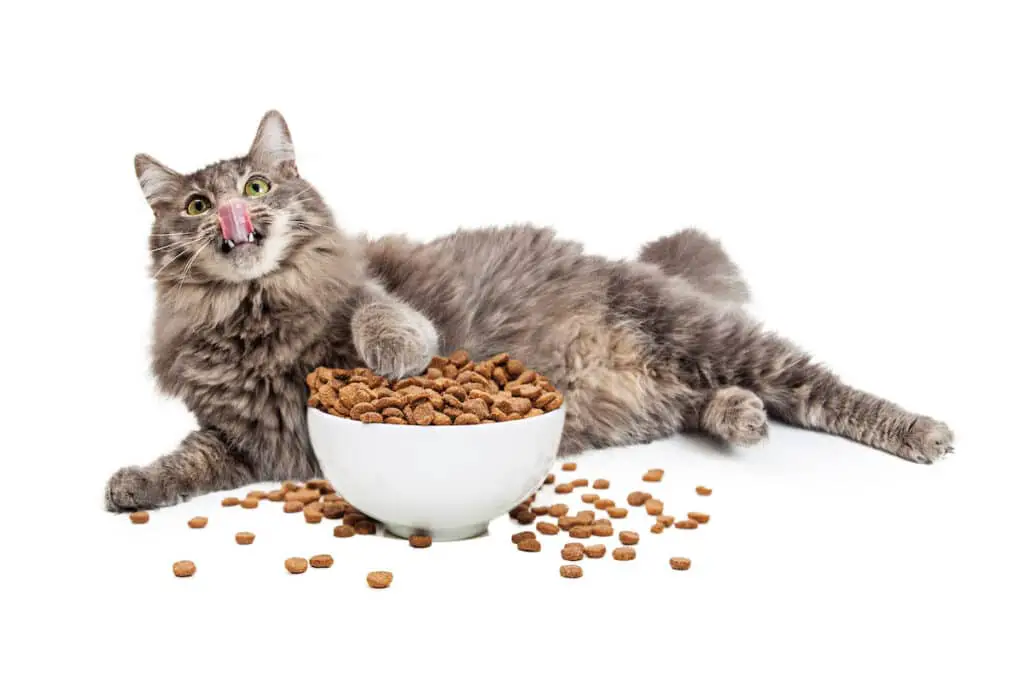It should come as no surprise that your cat requires a healthy diet that is balanced, but if you’ve ever wondered, “Why is my cat always hungry?” it may be time to investigate your cat’s feeding habits.
Why is my cat always hungry?
Cats normally graze and snack throughout the day, but if your cat finishes a meal and then asks for more, there may be a problem. This problem might be anything from boredom to a medical condition to a simple desire for additional calories. The calorie composition of various commercially available foods varies, and you can usually find a chart on the food container.
Ask your vet for advice on figuring out your cat’s ideal body weight because every cat has a distinct metabolism. Your veterinarian can offer advice on how to modify your cat’s diet so that it can safely attain and maintain its desired weight. Even switching your cat to one of the many different food varieties that can keep them content and full in between meals may be advised by your vet.
Health Issues If Your Cat Is Always Hungry
Your cat may be overweight if you have trouble easily touching their ribs or spotting their waist when looking down from above. They might not require anything more than a regular feeding routine. Many cat owners decide to free-feed their pets; however, for cats who lack self-control, this can result in extra weight and undesirable health effects, such as joint disease and diabetes mellitus.
Always keep in mind that your cat’s needs will change depending on their size, level of energy, and health. The age of your cat will also be important because, like humans, cats’ metabolisms decline with age. Your veterinarian will be able to provide you with your cat’s ideal weight and daily calorie intake. In any case, if you can affirm that your cat is constantly hungry, it’s time to consult your veterinarian. They can assess whether there is a serious issue or whether the cat is just acting bored and eating.
Your cat is always hungry because they’re bored.
Some cats are better than others at cutting themselves off from the food. Just like some people, some bored house cats have been known to eat for no other reason than boredom. I could be that your cat is always hungry because they’re bored.
Unfortunately, nibbling when one is not truly hungry can result in a number of illnesses, such as obesity, osteoarthritis, urological issues, and diabetes mellitus. According to the Cornell Feline Health Center, obese cats have a double the risk of dying before they reach middle age (for cats, this is between the ages of 6 and 12). In light of this, it is a wise decision on your part and well worth the effort to keep your cat busy with things other than making another journey to the food dish.
In fact, limiting food intake is one of the biggest things you can do to help your cat lose weight.
Food puzzles, which were first employed in zoo settings, are an excellent approach to engage cats and simulate the environment that nature designed them for. By making your cat work for their food, you can help your cat’s health while also reducing anxiety and other undesirable behaviors that frequently result from boredom. The Journal of Feline Medicine and Surgery claims that circular food puzzles are ideal since cats can easily bat them around. There are many food puzzles on the market that can stimulate your cat and provide them both a mental and physical workout.
You’re Cat is Always Hungry Because of Medical Issues
Is your cat constantly peckish? It’s important to have your cat’s vet check them out to make sure there isn’t an underlying medical issue if they never appear to become full.
- Hyperthyroidism: When there are too many thyroid hormones in the blood, this happens. The hallmark symptom of this hormonal disorder is weight loss despite an increasing appetite. Muscle atrophy, vomiting, increased urine and thirst, as well as behavioral abnormalities like anxiety, hyperactivity, and increased vocalization, may also be present.
- Internal parasites: These parasites can essentially steal the food that your cat consumes, leaving your cat feeling ravenously hungry despite not receiving the nourishment they require to survive. It doesn’t necessarily follow that your cat’s digestive system is free of parasites just because you can’t detect any worms in their stool. Other indications include runny feces and an untidy coat.
- Diabetes mellitus: This illness, often known as “sugar diabetes,” makes cats ravenous while they lose weight. An increase in water intake and urination are further clinical indicators.
- Cancer: Cancer is yet another reason why cats have an increased appetite, despite it being a vague illness. Cats with systemic and intestinal malignancies in particular may require more calories, even if they frequently don’t seem to gain much weight.
Should I be worried if my cat is always hungry?
Every cat has a different optimum weight that they should maintain, and they should consume a certain quantity of calories to do so. While it is easy for cats to gain weight, especially as they age and become less active, the majority of cats will act out momentarily when their food is changed to the proper amount.
Remember that this protesting is not the same as an insatiable appetite. If your cat seems hungry or if its hunger changes suddenly enough for you to notice, this typically points to an underlying issue that necessitates a trip to the vet.














